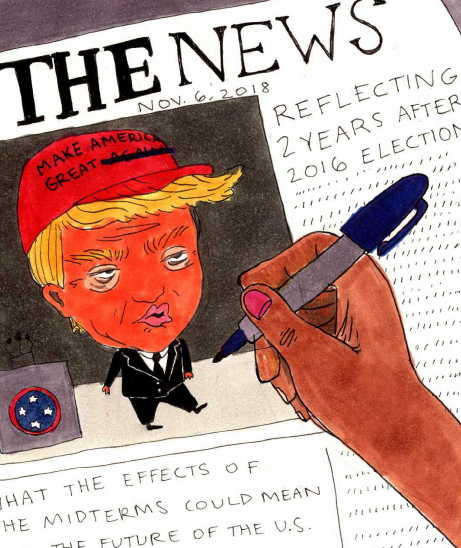America Is A Lie
We are Living a Big Lie in America! By the grace of God, we, therefore, shall lift our voice against sin, not merely as a human weakness, not merely as the mistakes of a race trying to climb upward by evolutionary process, but as that vicious, selfish, filthy thing which lies at the basis and root of all man's troubles and trials. Media consolidation in the US is such that six corporations control 90 percent of the junk food news and entertainment fed to the people of the US and around the world. And US Courts not only say that this is OK, but also decided that it’s OK for them to knowingly lie to the public. That, in a nutshell, is why the US media lie: Because they can.
Americans continue to kid themselves that if you work hard you can climb the ladder. But the perception and reality are moving farther apart.

Economists at Harvard University recently published research on actual and perceived economic mobility in the United States and four European countries. They found an American public in denial. The data show that Americans believe the chance that a person who is born into the bottom 20% of households in income in the US can reach the top 20% in adulthood is more than 50% higher than in reality.
Not all other countries suffer from such misconceptions. The four European countries the researchers studied—Italy, the United Kingdom, France and Sweden—actually underestimated the likelihood of a person moving from the bottom to the top.
Based on surveys of at least 1,000 people in each country, the following chart shows how likely people think children born into the poorest 20% of families will grow up to be among the richest 20%, along with the most recent high quality data on the actual probability.
While the average American thinks that about 12% of those in the poorest fifth households make it to the top, the true number is less than 8%. In contrast, people in the other four European countries surveyed are all overly pessimistic about the economic chances of those born poorest. The French, who underestimate mobility from the bottom to the top by two percentage points, are the most erroneously dour.
/cdn.vox-cdn.com/uploads/chorus_image/image/37781686/90002682.0.0.jpg)
People on the political right tend to perceive greater economic mobility than those on the left in each country studied. For example, in the US, the average person that the researchers identified as left-wing guessed that 11% of people from the bottom 20% move to the top, and the average right-wing person guessed that it was 12.5%. Due to this bias, European perceptions about intergenerational mobility are more accurate on the right, while in the US, those on the left tend to guess numbers closer to the truth.
Download Spider-Man: Shattered Dimensions for FREE on PC - Released on 16 Feb, 2013. Learn how to download and install Spider-Man: Shattered Dimensions for free in this article and be sure to share this website with your friends. Spider-man shattered dimensions free download torrent.
Beyond just looking at perceptions of mobility, the researchers also gathered data on people’s beliefs about economic fairness. They found that even though climbing the economic ladder is least likely in the US among the countries they surveyed, Americans have unusually strong beliefs in the fairness of the economic system, and the relationship of hard work to success.
The researchers also discovered that, within the US, anoverly optimistic outlook about economic mobility is concentrated in the parts of the country where actual mobility is lowest. The Southeast is the area of the US with the lowest economic mobility and highest inequality. Yet the average Southeasterner believes that the chances of someone from the bottom 20% reaching the top are almost double what they actually are.
The idea that anybody can make it in the US if they work hard enough has been a bedrock of American life since the country’s birth. At one time, this might have been more true than today. Because historical data is difficult to obtain, researchers are unsure of whether economic mobility has decreased in the US, but it likely has. Inequality and economic mobility are highly correlated, and inequality has been on the rise in the US for the last half century. If it’s true that mobility has decreased, awareness has not caught up to reality.
These misperceptions matter. Beliefs about economic mobility are strongly related to support for higher taxes on the rich (pdf) and government spending on education and public health. Even for those who don’t believe government is effective at solving social problems, accurate perceptions of how likely it is for the poor to reach the top may change attitudes to philanthropy and volunteerism.

America Is A Lie Memes
The US is no beacon of economic opportunity. It’s time Americans realized it.